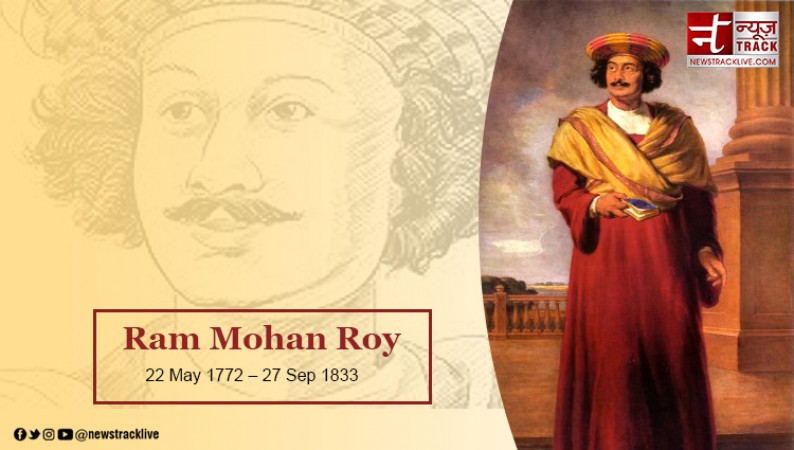
On September 28th, India observes the death anniversary of one of its greatest revolutionaries and thinkers, Raja Ram Mohan Roy. A reformer, scholar, and harbinger of the Indian Renaissance, Raja Ram Mohan Roy passed away on this day in 1833 in Bristol, England. His life and work continue to inspire generations as he challenged superstitions and social customs, paving the way for a more enlightened and progressive society.
From a young age, Ram Mohan Roy displayed a rebellious spirit against the prevailing superstitions and regressive social norms of his time. His thirst for knowledge and broad outlook led him to travel extensively and engage with a wide range of ideas. He believed in the importance of studying English, science, Western medicine, and technology as essential tools for expanding one's knowledge and perspective.
Raja Ram Mohan Roy recognized the urgent need for social and religious reforms in Indian society. To champion this cause, he founded the Atmiya Sabha, an organization dedicated to promoting social and religious reform. One of his most significant contributions was his advocacy for women's rights. He staunchly fought for the right of widows to remarry, challenging the deeply entrenched practices that deprived them of this fundamental human right. Furthermore, he advocated for women's rights to own property and receive education, breaking barriers that had held women back for centuries.
In 1828, Raja Ram Mohan Roy established the Brahmo Samaj, one of the first socio-religious reform organizations in India. The Brahmo Samaj aimed to free religion from the shackles of rituals and dogma, emphasizing a more rational and inclusive approach to spirituality. Roy's vision was to create a society where individuals could practice a form of spirituality that encouraged critical thinking and social reform.
One of the most heinous practices that Ram Mohan Roy vehemently opposed was sati, the immolation of widows on their husband's funeral pyres. He campaigned relentlessly for the abolition of this gruesome practice, highlighting the inherent cruelty and injustice it represented. His efforts, combined with those of other reformers, eventually led to the outlawing of sati, marking a significant milestone in the social reform movement of India.
Raja Ram Mohan Roy's life and work remain a testament to the power of individuals to effect positive change in society. His relentless pursuit of knowledge, commitment to social justice, and advocacy for women's rights have left an indelible mark on India's history and continue to inspire people worldwide. As we commemorate the death anniversary of this remarkable reformer, we remember the enduring legacy of Raja Ram Mohan Roy and his unwavering dedication to the betterment of society.
Remembering Ishwar Chandra Vidyasagar: A Pioneer in Education and Social Reform